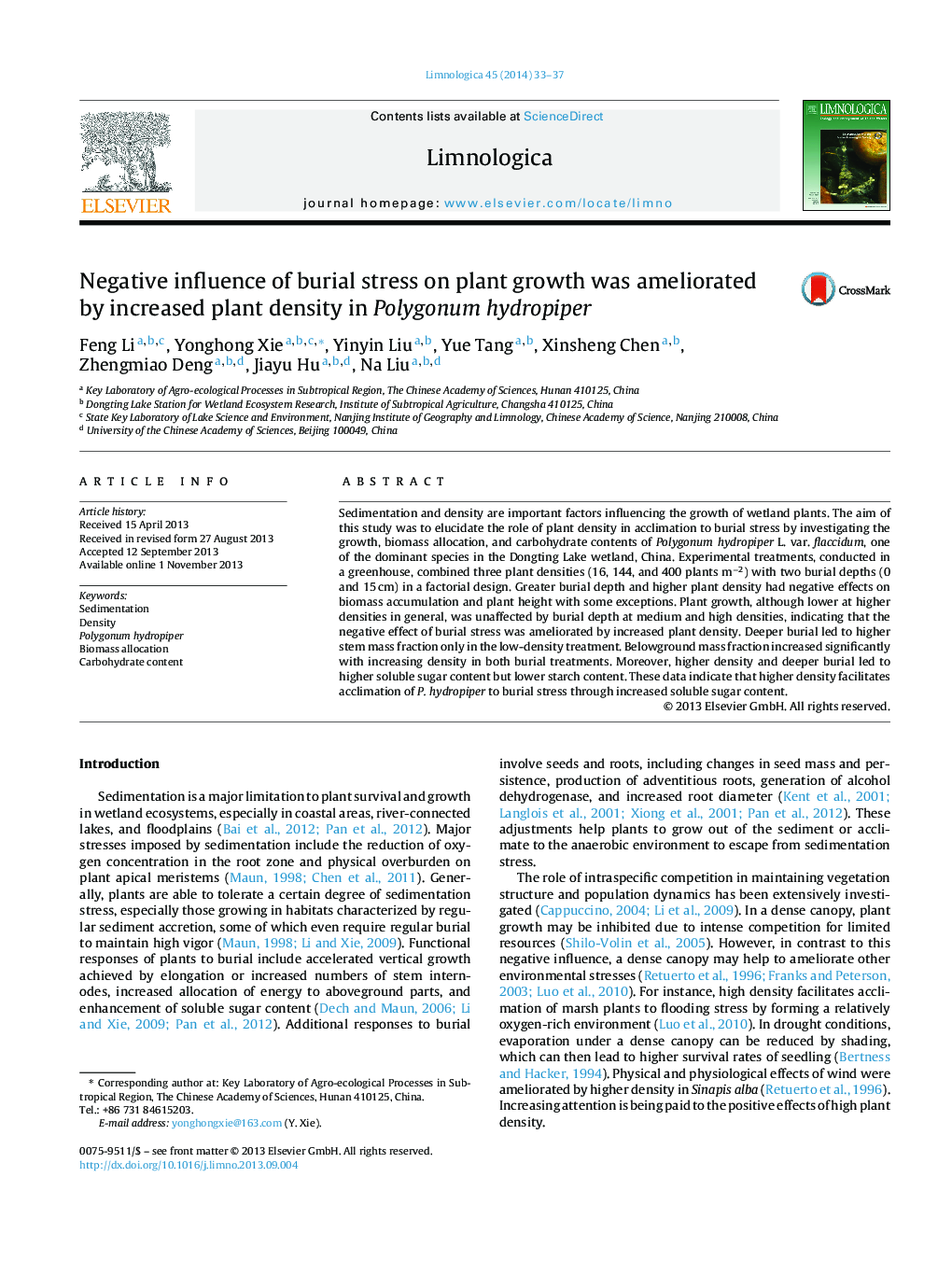| Article ID | Journal | Published Year | Pages | File Type |
|---|---|---|---|---|
| 4400388 | Limnologica - Ecology and Management of Inland Waters | 2014 | 5 Pages |
Sedimentation and density are important factors influencing the growth of wetland plants. The aim of this study was to elucidate the role of plant density in acclimation to burial stress by investigating the growth, biomass allocation, and carbohydrate contents of Polygonum hydropiper L. var. flaccidum, one of the dominant species in the Dongting Lake wetland, China. Experimental treatments, conducted in a greenhouse, combined three plant densities (16, 144, and 400 plants m−2) with two burial depths (0 and 15 cm) in a factorial design. Greater burial depth and higher plant density had negative effects on biomass accumulation and plant height with some exceptions. Plant growth, although lower at higher densities in general, was unaffected by burial depth at medium and high densities, indicating that the negative effect of burial stress was ameliorated by increased plant density. Deeper burial led to higher stem mass fraction only in the low-density treatment. Belowground mass fraction increased significantly with increasing density in both burial treatments. Moreover, higher density and deeper burial led to higher soluble sugar content but lower starch content. These data indicate that higher density facilitates acclimation of P. hydropiper to burial stress through increased soluble sugar content.
